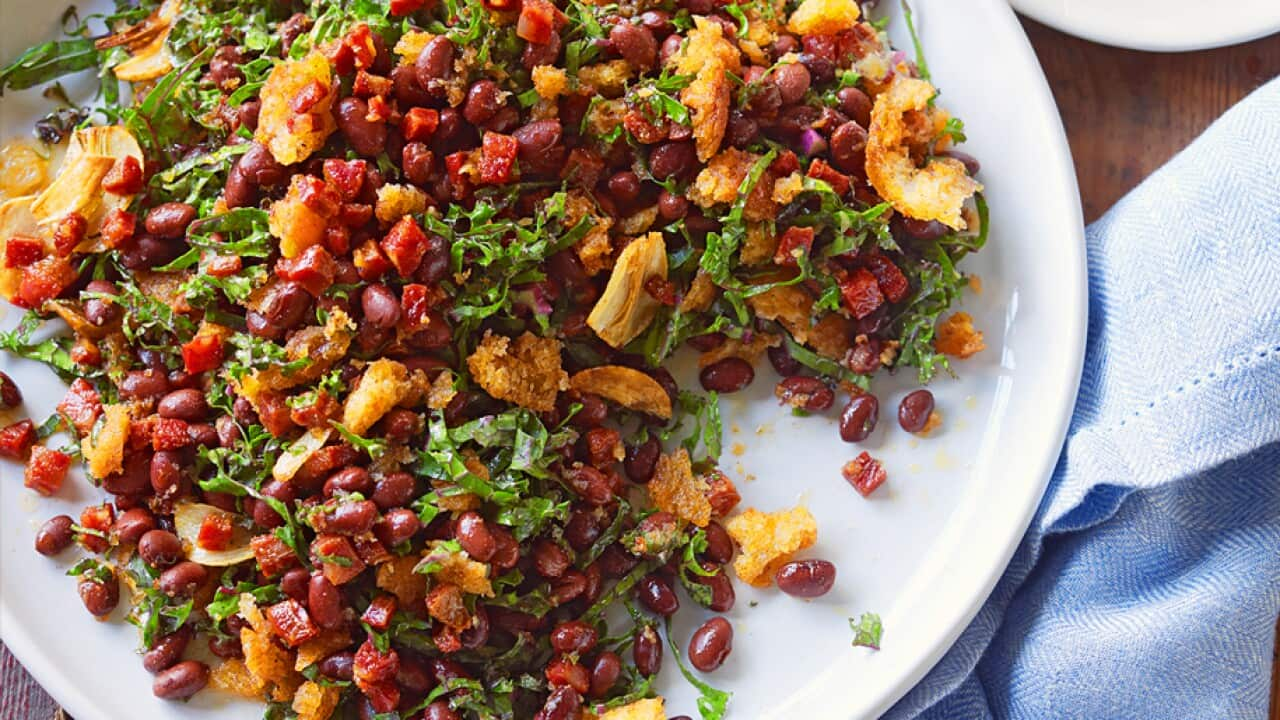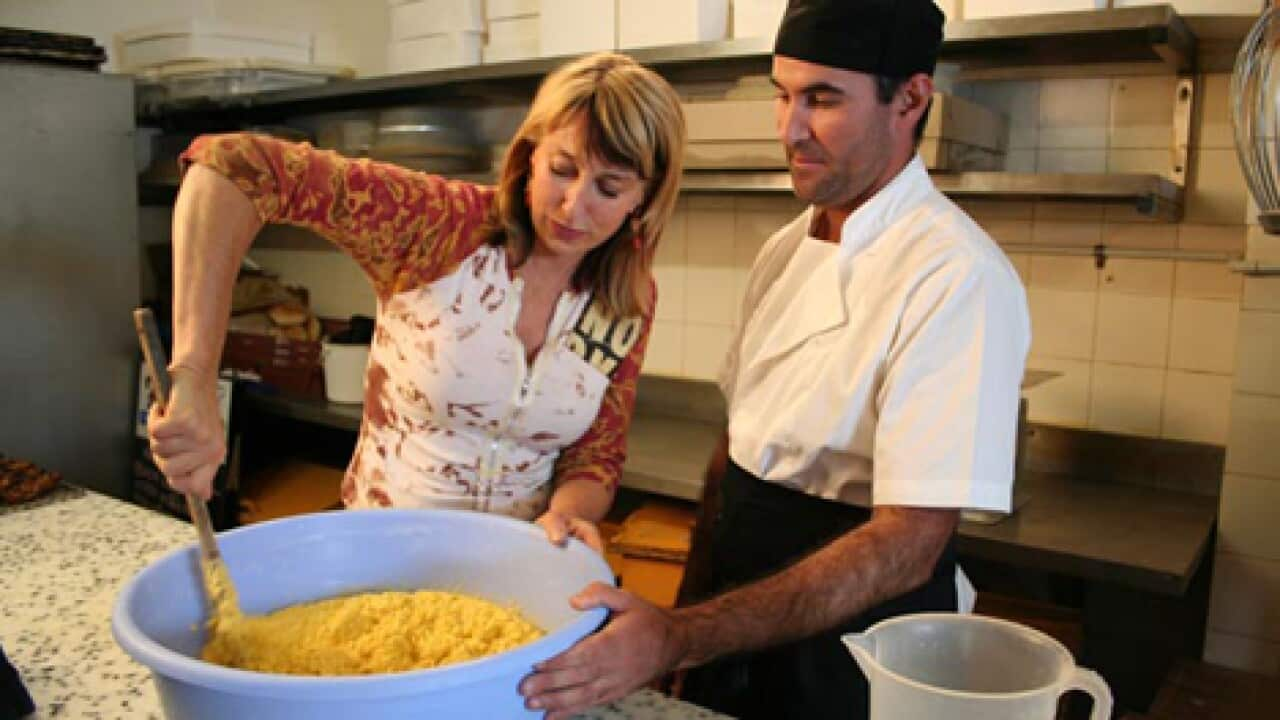Australians have a great affinity for European cuisine. Most of us know the flavours of France, Spain and Italy. Yet there’s one great country where the food sings in the shadow of its more popular neighbours. This is even though its cuisine is just as deliciously deserving of celebration.
That place is Portugal: a country with a rich food culture that's steeped in centuries of colonial empire rule and generations of diverse family recipes.
“People have long thought that Portuguese cuisine is just custard tarts and Port wine,” says Portuguese born and raised chef, Leandro Carreira.
“Well, I want to say ‘thank you custard tarts’ and ‘thank you Port wine’. But Portuguese cuisine is so much more than that. It’s now time for the real food of Portugal to be known widely known across the world.”
It’s now time for the real food of Portugal to be known widely known across the world.
The real Portugal on a plate
So what is the ‘real food’ of Portugal then? Carreira spent almost three years asking this question, diving into his cultural identity to uncover the recipes of Portugal’s households.
The result is the new book from Phaidon Publishing, It contains around 500 traditional recipes from the small country, sourced from the mountainous north to the southern beach resorts of the Algarve, and the island outposts of Madeira and the Açores.
“The book has 500 recipes but I had 300 more I could have included,” he says. “Some recipes are more than a hundred years old.” The recipes featured are as diverse as the microclimates throughout the mainland and Portuguese islands where the dishes originate.
The recipes featured are as diverse as the microclimates throughout the mainland and Portuguese islands where the dishes originate.

Meat stew with beans and spices, Porto-style, with pork belly, pork ribs, cow's stomach, chorizo, ham, lard, pig's ears and cow's hoof. No off-cut was wasted. Photo by Mário Ambrózio and Rafael Rodrigues at Raw Studio. Source: Phaidon: from Portugal, The Cookbook
For example, fish and seafood dishes are plentiful by the coast (chocos com tinta or “cuttlefish with ink). Inland, there’s game and poultry (partridge with mushrooms); snails; pork (suckling pig with offal stuffing); beef and veal. Soups and vegetable-based dishes are also big across the Iberian nation.
Savoury flavours in many Portuguese dishes are created with garlic, olive oil, coriander, rosemary, bay leaf, potatoes, onions and pimento – a Portuguese red, sweet chilli pepper.
The book has 500 recipes but I had 300 more I could have included. Some recipes are more than a hundred years old.
Carreira grew up in a town called Vale da Telha, south of the country. He recalls one of his favourite dishes was bread porridge (acorda), served alongside warm pork ribs and loin. It’s made of crusty bread (or stale bread to prevent food waste) softened in hot water and shaped into large quenelles. The bread is then cooked in the fat of the pork ribs. The result is a golden outer crust.
“This dish, traditionally, has no glamour whatsoever. But then you add the most popular Portuguese condiment, fermented red pepper paste to it, it’s delicious. It will entertain you for quite a while, as you spend some time eating the stew and scraping the meat from the bones. Acorda is just really nice and warming.”
Deserts vary across the regions and may feature locally grown almonds (almond sponge traybake with fig leaf gourd jam), egg yolk-based pastry, cinnamon, vanilla, lemon zest, orange zest, aniseed, clove and allspice.

Bread soup (acorda), typical of Alentejo style. This is a soup with a transparent broth, blanched pennyroyal or coriander, garlic, salt, stale bread and eggs. Photo by Mário Ambrózio and Rafael Rodrigues at Raw Studio. Source: Phaidon: from Portugal, The Cookbook
Modest food but rich in culture
Beyond the ingredients used, Portuguese dishes are often symbolic of family life and at other times, socioeconomic restraint. Food was never wasted and off-cuts like a cow's hoof or pig's ear were featured in soups (meat stew with beans and spice, Porto-style) for added depth.
“In my house, we were very lucky in the sense that we always had food to eat,” says Carreira, owner of the London-based restaurant . “I remember my grandmother making fresh goat's cheese, oven-baked cornbread and long stews made with fish or pork.
“My dad used to say to us ‘we might not have a Mercedes but we'll always have nice food at the table’.”
The past and the present
Despite the humbleness of Portuguese meals, many Portuguese ingredients were derived from the wealth of its colonial empire.
Portuguese cuisine uses a bounty of natural ingredients and cooking techniques discovered along its pioneering 16th-century trade routes – South America, Asia, and Africa.
The ingredients of Portuguese fare have also been influenced by other major players. The Phoenicians first introduced almonds and chickpeas to the country and promoted preservation methods through salting. The Romans made their mark by bringing wheat, olive oil and wine into Portugal, while the Celts brought poultry, chicken and eggs into the Iberian diet.
This is a dish that I adore. I mean, it's the most humble meal ever, right? That’s why to me, it’s so intrinsically Portuguese.
The list of external influences on local cuisine continues, including the Moors and Iberian Jews. Meanwhile, one of the most popular Portuguese staples – salt cod (bacalhau) – was actually a Nordic import.
Estimates pitch the average annual consumption of salt cod in Portugal at around six kilograms per person. “It’s no wonder that its nickname is ‘fiel amigo’, or ‘faithful friend’,” Carreira writes in the book.
“Some people say there are more than 1,000 Portuguese recipes for salt cod but I think there are way more than that,” he says. “It has a flavour and incredible texture that people love. It goes well with almost everything that you put on.”
Salt cod can be baked and served with tomato, mash and onions; presented as a macaroni dish; or even shredded and eaten with chickpeas and parsley.
One perennial favourite is salt cod with eggs, onions, and potatoes. Flakes of cod are infused in milk, then layered with thinly sliced potatoes, onions and eggs and cooked in a very hot oven until golden and toasted.
“This is a dish that I adore. I mean, it's the most humble meal ever, right? That’s why to me, it’s so intrinsically Portuguese.”












